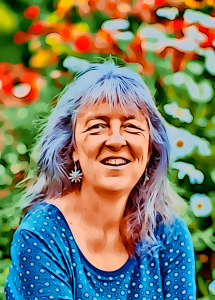157 Letter from Adele Ladkin

To our future tourism researchers
My career, I’m sure like for many others, has involved a lot of hard work, an element of good luck, has been full of ups and downs, and has had me laughing with joy and screaming with frustration. I continue to be delighted and surprised by some of the things I am able to do and achieve in my work, and on many occasions am baffled by my own stupidity. All of that aside, I consider myself very privileged to have spent more than 25 years immersed in tourism research (and surrounded by researchers) and all it (they) have to offer. I wish the same for you.
So what do I write to you today? As someone who has spent a number of years reading and writing about careers, I feel somewhat under pressure to give some good career advice! Not sure if this constitutes good, but here goes.
As a starting point, it’s worth being mindful that an academic career is a very structured one. It has defined career routes, clear stages of advancement, expectations of achievement at each academic level, and often involves mobility within and between institutions. Operating alongside this structure are the choices we make as individuals regarding our careers; including opportunities, constraints, interests, expertise, preferences and our personal circumstances. Borrowing from Gunz (1988) who was writing in relation to managerial careers in organisations, he likened the structures of an organisation to a climbing frame, over which managers scramble to make their careers. So in our case, the structured framework is our institutions (both internal and external) and our choices we make that direct our scrambles. An academic career also has deep routed traditions, many of which were laid down when University academics were a much less diverse group of people. I do remember a time when I could never fill in any surveys anonymously, because once I had ticked the boxes of rank (Professor) gender (Female) and School (Tourism) everyone knew it was me. You guessed it; I was the lone female Professor. The structures of academic careers are embedded in the past, and whilst change is evident, there remains an ‘expected’ career path, as is the case for many professional occupations. It can be unforgiving for those who are not willing or able to play the game, but I am pleased to say that this landscape has and continues (slowly) to change for the better.
Set in this context, the advice I would give is to be aware of the career framework and to have a plan – where do you want to be in your career in three, five, or ten years time? What are you going to need to do to follow your plan? What sacrifices are you prepared to make, if any? Is there anyone who can support you in your decision making? In academia, there are traditional ‘rites of passage’ that individuals are expected to go through as we work to build our knowledge and skills, not all positive experiences it has to be said! There is also an assumption that people always want career advancement, which is not necessarily the case. Some do, others however may move sideways, downwards or not at all. So, be mindful of the structure of an academic career path but ultimately do what is right and possible for you. Scramble (or calmly stroll) across that frame at your own pace. In the early days of my career I had more than one fantastic mentor – try and get yourself the same.
I would also advise, and it seems incredulous to say it at the time of writing during the Covid-19 pandemic, but get out and about. Virtually…physically…intellectually……out and about. To help you in your career take every opportunity to talk about your research, meet new people, do new things, take on new roles and responsibilities, get uncomfortable, mess things up but learn from it if you can. Some of the people who have and continue to make an impact on my academic life I met by chance, at conferences, workshops, programme validations, even PhD vivas! I do feel that for many of us workloads are becoming more and more challenging and there is always the pressure to deal with the immediate. This is to the detriment of many things in our work lives, including taking time to read, think, reflect and communicate about our research, sharing ideas with colleagues, and exploring other disciplines and ways of learning. An academic career might be an individual one but we can and do learn a lot from others – grab any opportunity you can and enjoy.
My final piece of advice is to weave your work into the tapestry of your life, not the other way around. Easier to do if collectively we all try.
Oh yes one more thing, get a dog. They keep you fit, tell you when you have spent too long staring at the computer and they judge you on your ability to feed them on time, not your h-index.
All that remains to be said is thank you very much for taking the time to read my ramblings and I wish you every success.
With best wishes,

Adele Ladkin
Bournemouth University, UK
References
Gunz, H. (1988). Organizational logics of managerial careers. Organizational Studies, 9(4), 529-54.

